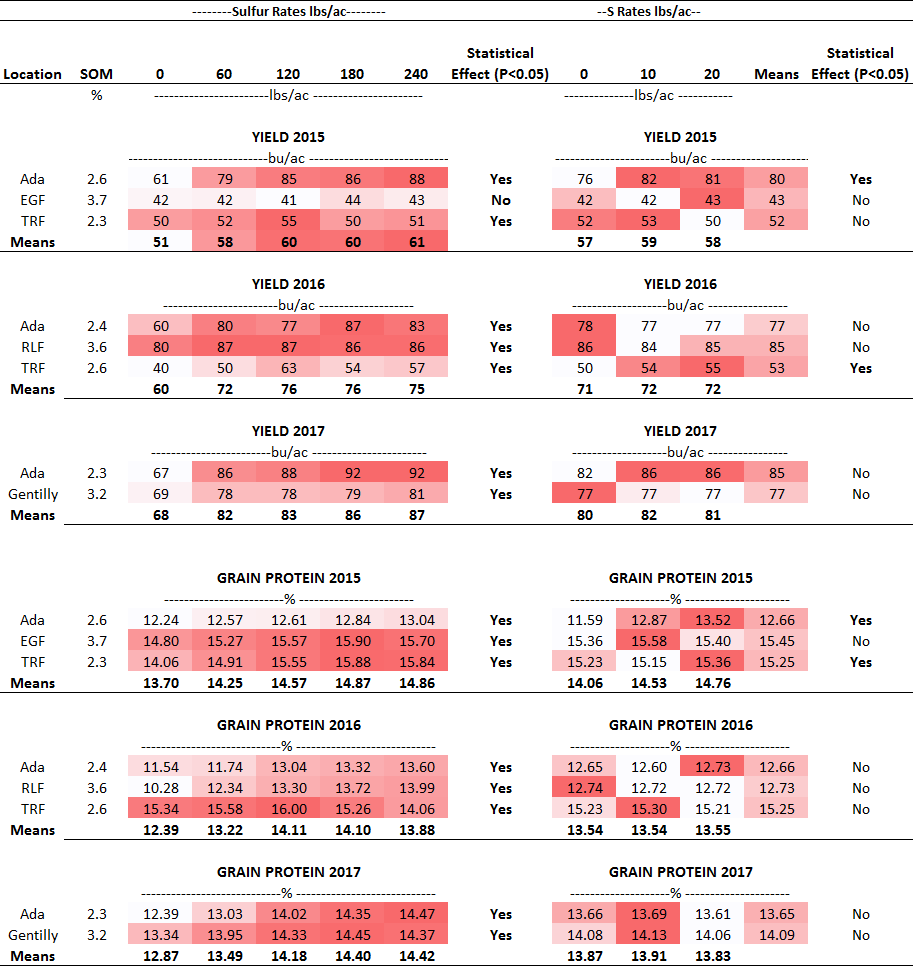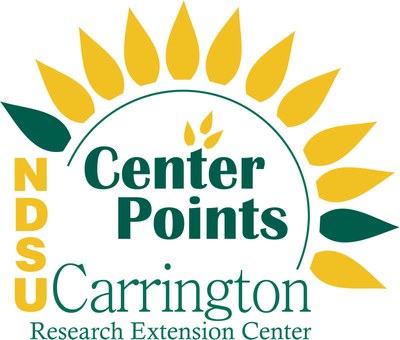Average Yield and Protein of Spring Wheat in Response to S and N Treatment (NW Minnesota, 2015-2017)
01/15/18
Several trials were conducted in the Red River Valley area of Minnesota from 2015 to 2017 to assess the impact of sulfur (as ammonium sulfate) fertilization and nitrogen (urea) on yields and protein of spring wheat.
- The sites included Ada (2015 to 2017), East Grand Forks (EGF – 2015), Thief River Falls (TRF – 2015, 2016), Red Lake Falls (RLF – 2016), and Gentilly (2017).
- The soil texture at each site, from lightest to heaviest, was sandy loam (Ada, TRF), Loam (RLF, Gentilly), silty clay loam (EGF)
- Soybean was previous crop. N rates were applied on top of soil test N, which ranged from 22 to 62 lbs/ac. Treatments were surface applied and incorporated before seeding.
Results
- Means of yields and protein are presented in the table below.
- From the results observed, yields were increased by N rates at statistically significant levels at all sites except one (EGF, 2015). Grain protein was enhanced by N.
- Sulfur application resulted in statistically significant effects on yields in two (Ada – 2015, and TRF – 2016) out of the 8 trials.
- The soil organic matter (SOM) content at the two responsive sites was always < 3%. Three of the trials with SOM < 3% and the other three trials with SOM > 3% did not show significant yield response to S.
- Across all trials, S application resulted in two-bushel increase from 10 or 20 lbs. S versus 0 lbs S. Grain protein increased by 0.17% at 10 lbs. S, and by 0.23% at 20 lbs. S.
- Ten pounds of S was enough to satisfy the S demands of the crop for these trials and was more economical than 20 lbs S.
- The amount of precipitation in the fall and spring was high enough to have explained the S response at Ada and TRF. Low inherent soil S content and low S mineralization were the main reasons for yield responses.
- Application of S above the 15 lbs. recommendation will likely not result in economic returns.

Acknowledgement: Funding for this project was provided by the Minnesota Wheat Research and Promotion Council.
Jasper M Teboh, Ph. D.
Jasper.Teboh@ndsu.edu
Research Soil Scientist


